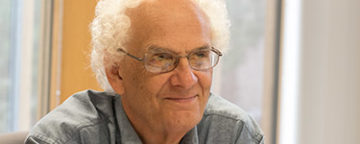One American in three says that the Bill of Rights guarantees the right to own your own home, while 1 in 10 thinks that it guarantees the right to own a pet, according to an APPC national survey released for Constitution Day.


One American in three says that the Bill of Rights guarantees the right to own your own home, while 1 in 10 thinks that it guarantees the right to own a pet, according to an APPC national survey released for Constitution Day.

Thousands of immigrants from across the globe will be sworn in as American citizens, while students nationwide will take part in the “Preamble Challenge” to celebrate Constitution Day (Sept. 17).

CNN's "State of the Union" and FactCheck.org, the nonpartisan fact-checking site, have announced a new partnership to create a weekly online video series looking at claims made in the 2016 presidential campaign. "State of the Union" anchor Jake Tapper will host the series.

In time for Constitution Day, Annenberg Classroom has released three videos dealing with constitutional protections and the rule of law, including habeas corpus in the Guantanamo Bay detention cases. Also back this fall is a popular online course about the Constitution from scholar Kermit Roosevelt.

Getting children to cut back on sugar-sweetened beverages like soda and energy drinks has been the goal of anti-obesity public service advertisements. A new study evaluates the effectiveness of persuasive techniques -- humor, fear and nurturance -- used in those PSAs.

In two addresses to groups with the Council of State Governments Eastern Regional Conference, Kathleen Hall Jamieson spoke about the attack on fact in politics, and challenges facing the scientific community and the implications for state legislative policy.

Rod Hart, former dean of the Moody College of Communication at the University of Texas at Austin, has joined APPC as a visiting scholar for the fall term. He is working on a book about civic hope, as expressed by ordinary citizens in a dozen U.S. cities over nearly 70 years.

A study by Annenberg Public Policy Center researchers finding that "The Colbert Report" educated viewers about campaign finance better than other media has been awarded 2014 Article of the Year by the journal Mass Communication and Society.

"Allegiance," a literary thriller by Kermit Roosevelt, a distinguished research fellow at the Annenberg Public Policy Center and constitutional law expert, is being published August 25. It draws on events surrounding the internment of Japanese Americans during World War II.

Dan Romer wrote in The Hill that guns, like cars, are a major cause of deaths and injuries in the United States, especially for young people. Yet we know so much about motor-vehicle deaths than guns deaths - because we study them.